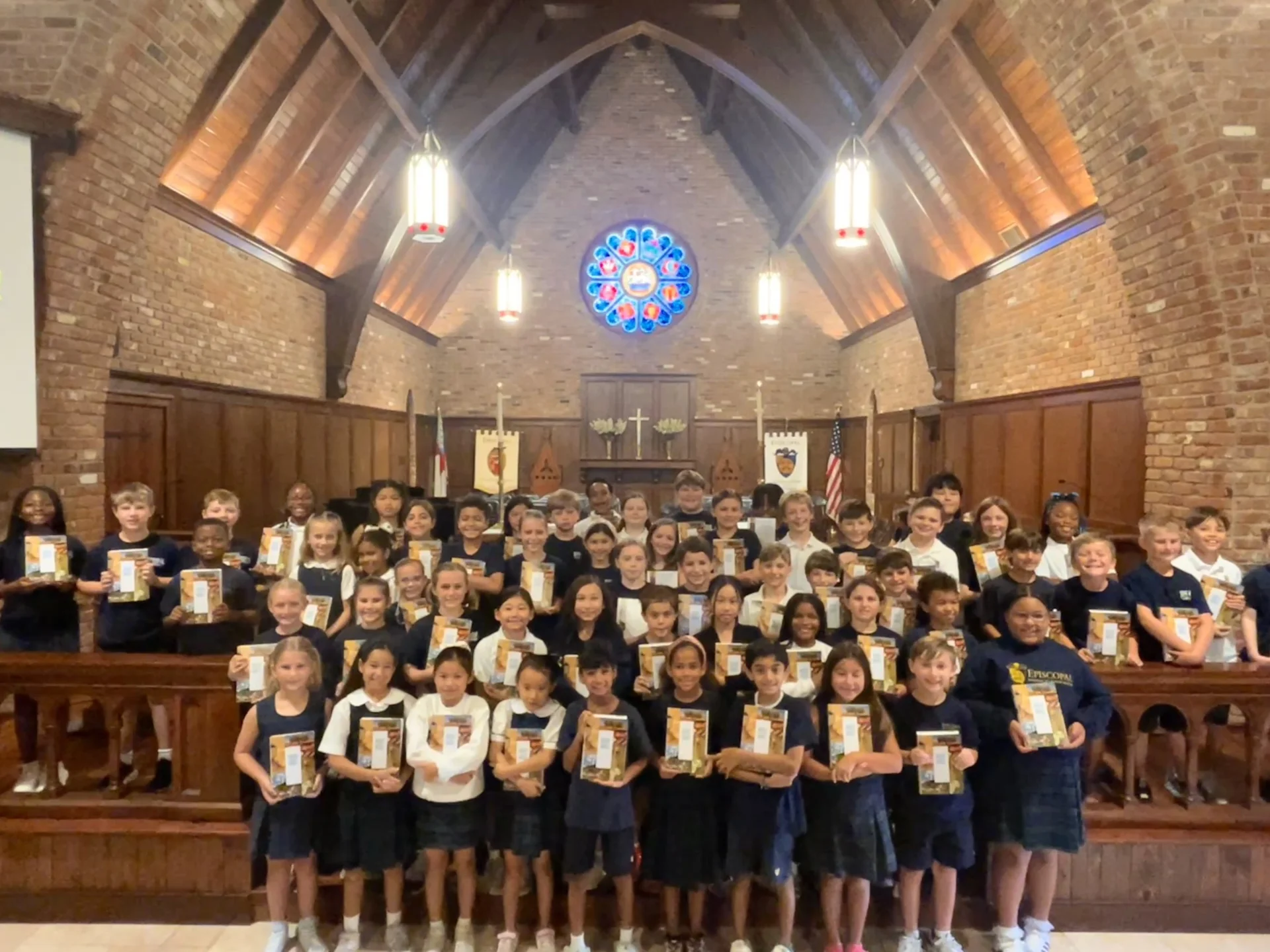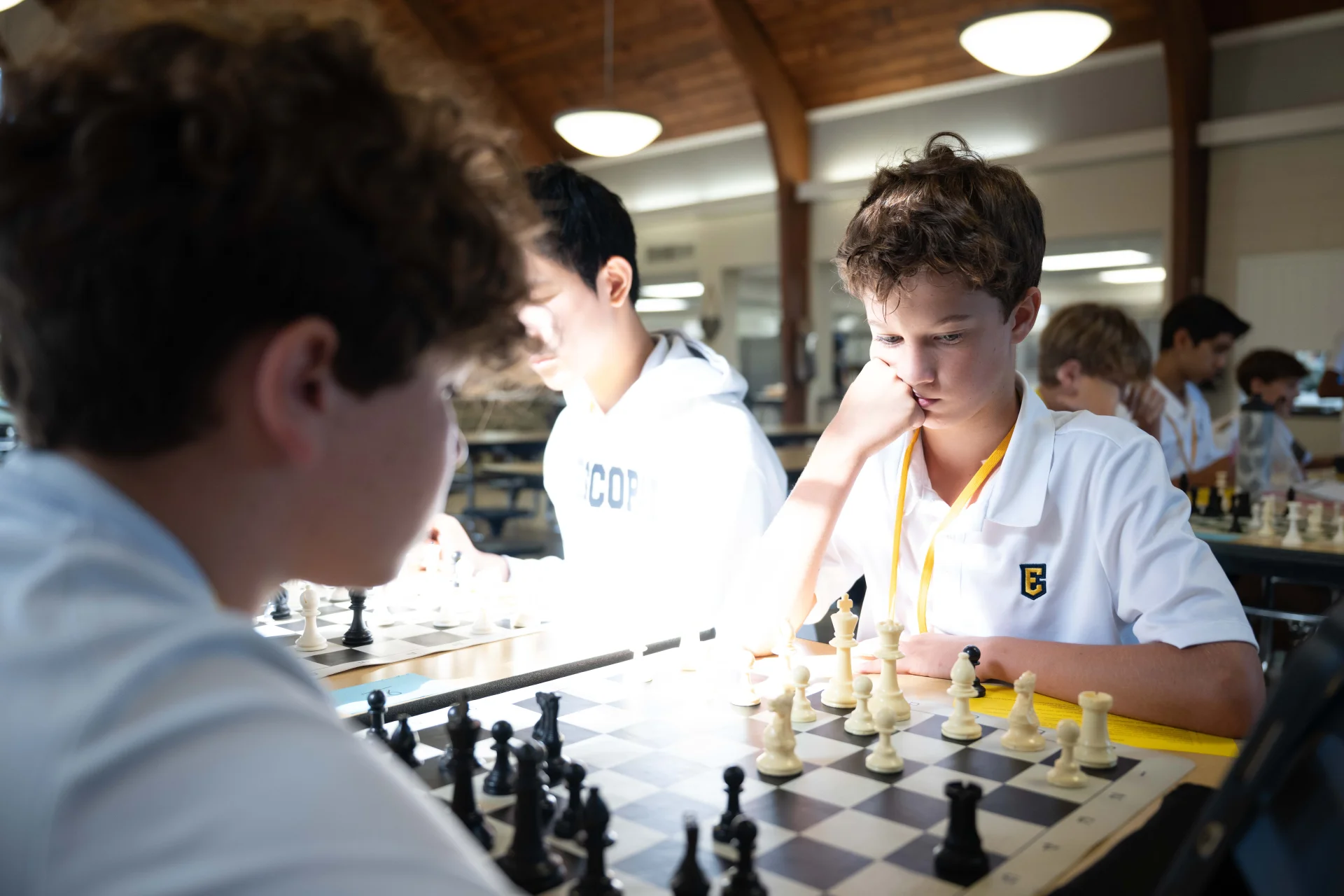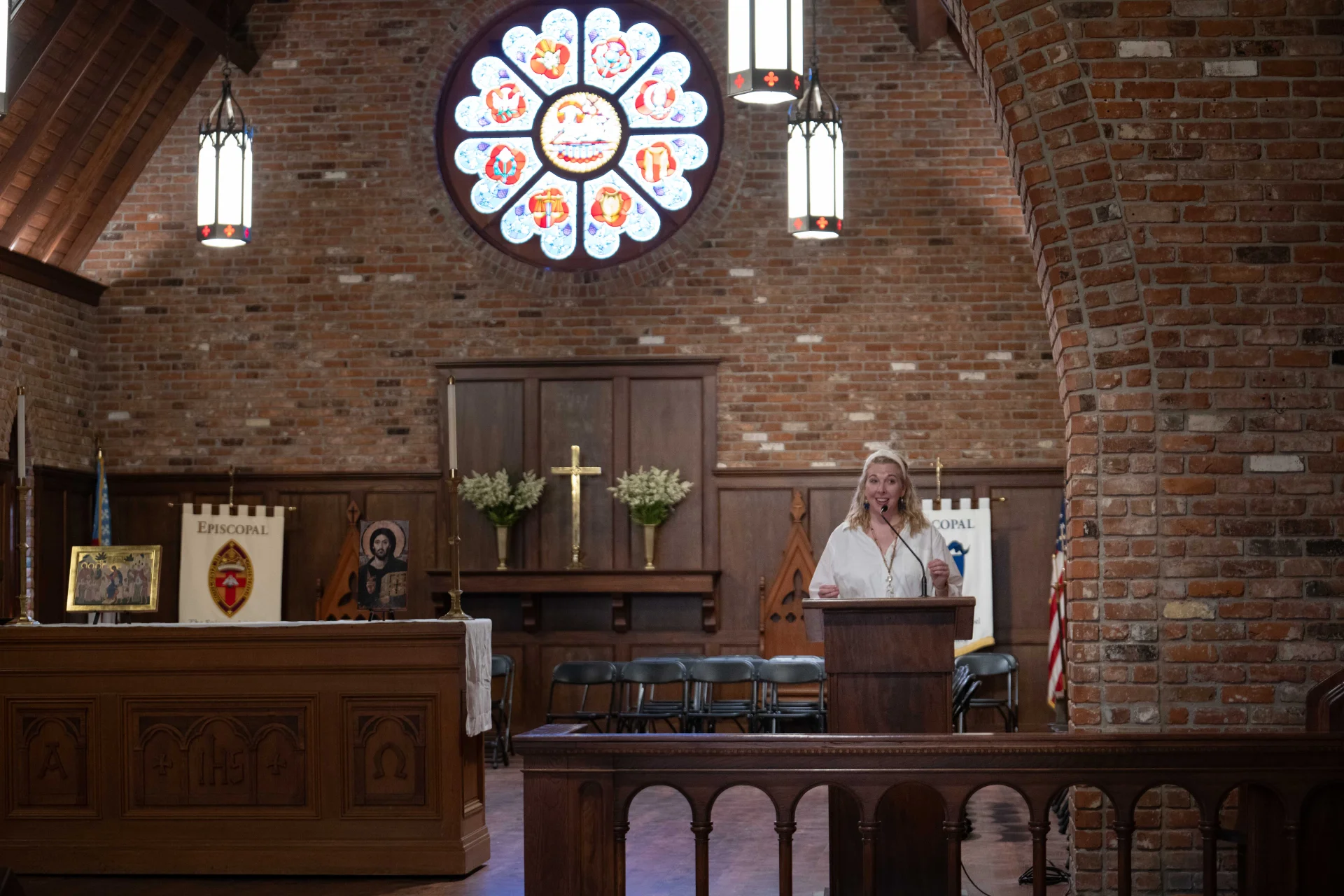- Admission
- Discover Episcopal
- Our Program
- Athletics
- Arts
- Spirituality
- Student Life
- Support Episcopal
- Alumni
- Parent Support
- Knightly News
- Contact Us
- Calendar
- School Store
- Lunch Menu
« Back
Climbing Life's Peaks Together: Finding Faith, Strength and Community
August 27th, 2024

“No one suffers the way one does on a mountain simply for a beautiful view. A summit isn't just a place on a mountain. A summit exists in our hearts and minds. It is a tiny scrap of a dream made real, indisputable proof that our lives have meaning.”
Erik Weihenmayer is one of my favorite celebrity athletes. A mountaineer and adventurer, Wheihenmayer has an incredibly impressive track record. In 2001, Erik Weihenmayer climbed to the highest point on earth when he summited Mt. Everest. In 2008, he completed his seventh of the Seven Summits, and in doing so joined an elite group of athletes who have climbed to the highest point on every continent. As of this year, only about 500 mountaineers have accomplished this feat. In 2014, Erik kayaked the entire 277-miles of the Colorado River through the Grand Canyon. In addition to this already impressive resume, Erik Weihenmayer is the only blind person to have accomplished these feats.
In his autobiography, Weihenmayer tells the story of his childhood explaining that as a toddler, he was diagnosed with retinoschisis, a rare eye disease that left him completely blind by the time he was a teenager. In his autobiographical work, "Touch the Top of the World” Weihenmayer writes, “Shortly after going blind, I received a newsletter in Braille about a group taking blind kids rock climbing. I thought to myself, ‘Who would be crazy enough to take a blind kid rocking climbing?!’ So I signed up!” He used his hands to explore the rock face and soon discovered that he had a talent for climbing. Though he describes those early days as full of “flailing and struggle,” Weihenmayer found freedom in the mountains. As he continued to climb, Weihenmayer built a team of people around him with a variety of strengths and gifts. Weihenmayer argues that having a team of people who bring an assortment of talents and work together toward the same goal is essential to success.
Mountain climbing is arguably a biblical sport. From Moses to Elijah, and even Christ himself, mountain climbers are found throughout the Bible. Like Weihenmayer points out, the goal of the climb is not “simply a beautiful view.” Rather, people are drawn to the mountaintops that we might encounter God and experience the holy. The Synoptic Gospels tell the story of the Transfiguration, the event in which Jesus and several of his disciples climb to the top of a mountain to pray. While atop the mountain peak, Jesus “was transfigured before them. His face shone like the sun, and His clothes became as white as the light.” On that mountain journey, the disciples discovered that God was not merely sitting atop a mountain waiting for them to arrive. Rather, as they struggled up the mountainside, God had been there climbing alongside them the whole time.
In the liturgy for Holy Baptism in the Episcopal Church, we vow “to seek and serve Christ in all persons, and love our neighbors as ourselves and to strive for justice and peace and respect the dignity of every human being.” It is upon those commitments of our Baptismal Covenant that Episcopal Schools are built. Episcopal Schools are a ministry of the Episcopal Church in which we seek to serve Christ in all persons, love our neighbors as ourselves, strive for justice and peace, and respect the dignity of every human being. In the journey of life, we are all mountain climbers. In Episcopal School of Baton Rouge, we have an incredible climbing team. We work together, each bringing our own gifts and talents as we strive toward a common goal. We push one another. We encourage one another. We support one another. We join together with love for God and love for one another, and we climb knowing that God who created us, redeems us, and sustains us climbs beside us. This year as we encounter struggles and celebrate successes, may every member of this community remember that none of us climbs alone.
- Weihenmayer, Erik. Touch the Top of the World: A Blind Man’s Journey to Climb Farther Than the Eye Can See (London: 2002)
- https://erikweihenmayer.com/
- Matthew 17:1-8; Mark 9:208; Luke 9:28-36
- Matthew 17:2
 Casey Duncan serves as the Chaplain for Episcopal School of Baton Rouge. She previously served as the Episcopal Upper School religion teacher and a long-term Lower School religion substitute teacher. Duncan earned a bachelor’s degree from Texas A&M University and a Master of Theological Studies with an emphasis in New Testament Studies from the Virginia Theological Seminary in Alexandria, Virginia. She is pursuing a Doctor of Ministry with an emphasis in ministry of educational leadership from the Virginia Theological Seminary. Before joining Episcopal, Duncan was the Program Coordinator and Lay Head of Congregation for the University of Texas Episcopal Campus Ministry. At the time, the UT campus ministry was the largest Episcopal college ministry in the country. Duncan worked with a student vestry, preached sermons, led worship services, offered pastoral care and much more. She is an active community volunteer serving as a Manna Giver with the Society of St. Vincent de Paul and an adult Christian education teacher and volunteer with St. James Episcopal Church. While in Texas, she was a member of the College Ministry Advisory Board, the University of Texas Interfaith Council and a Safeguarding God’s Children and Safeguarding God’s People trainer. Duncan is a proud mother to Carolena and Nils.
Casey Duncan serves as the Chaplain for Episcopal School of Baton Rouge. She previously served as the Episcopal Upper School religion teacher and a long-term Lower School religion substitute teacher. Duncan earned a bachelor’s degree from Texas A&M University and a Master of Theological Studies with an emphasis in New Testament Studies from the Virginia Theological Seminary in Alexandria, Virginia. She is pursuing a Doctor of Ministry with an emphasis in ministry of educational leadership from the Virginia Theological Seminary. Before joining Episcopal, Duncan was the Program Coordinator and Lay Head of Congregation for the University of Texas Episcopal Campus Ministry. At the time, the UT campus ministry was the largest Episcopal college ministry in the country. Duncan worked with a student vestry, preached sermons, led worship services, offered pastoral care and much more. She is an active community volunteer serving as a Manna Giver with the Society of St. Vincent de Paul and an adult Christian education teacher and volunteer with St. James Episcopal Church. While in Texas, she was a member of the College Ministry Advisory Board, the University of Texas Interfaith Council and a Safeguarding God’s Children and Safeguarding God’s People trainer. Duncan is a proud mother to Carolena and Nils.
The Episcopal School of Baton Rouge 2025-2026 application is now available! For more information on the application process, to schedule a tour, or learn more about the private school, contact us at [email protected] or 225-755-2685.
Posted in the categories All, Spirituality And Service.
Other articles to consider
 Sep11A Tradition of Faith and Community: The Fourth Grade Bible Blessing
Sep11A Tradition of Faith and Community: The Fourth Grade Bible BlessingLower School celebrated a milestone as fourth grade students received new Bibles.
See Details Sep11Introducing the Class of 2026 National Merit Semifinalists and Commended Scholars!
Sep11Introducing the Class of 2026 National Merit Semifinalists and Commended Scholars!Introducing the Class of 2026 National Merit Semifinalists and Commended Scholars!
See Details Sep5Building Community through Chess
Sep5Building Community through ChessMembers of the Middle School Chess Club describe it as a fun opportunity to become a better chess player. Read more about this club that has recently experienced tremendous growth.
See Details Sep4Finding Joy and Community in New Experiences
Sep4Finding Joy and Community in New ExperiencesCarrie Poynot challenges others not to fear failure and to find joy in trying new things. Read her recent Upper School Chapel message.
See Details
Categories
- All
- Admission
- Athletics
- College Bound 2019
- College Bound 2020
- College Bound 2021
- College Bound 2022
- College Bound 2023
- College Bound 2024
- College Bound 2025
- Counselors Corner
- Episcopal Alumni
- Giving
- Head Of School
- Lower School
- Middle School
- Spirituality And Service
- Student Work
- The Teachers' Lounge
- Upper School
- Visual And Performing Arts
Recent Articles
- 09/11/25A Tradition of Faith and Community: The Fourth Grade Bible Blessing
- 09/11/25Introducing the Class of 2026 National Merit Semifinalists and Commended Scholars!
- 09/5/25Building Community through Chess
- 09/4/25Finding Joy and Community in New Experiences
- 08/28/25Beyond Numbers: Bringing Social/Emotional Learning into Middle School Math
- 08/28/25Pursue Excellence: The Center for Excellence in Teaching & Learning











